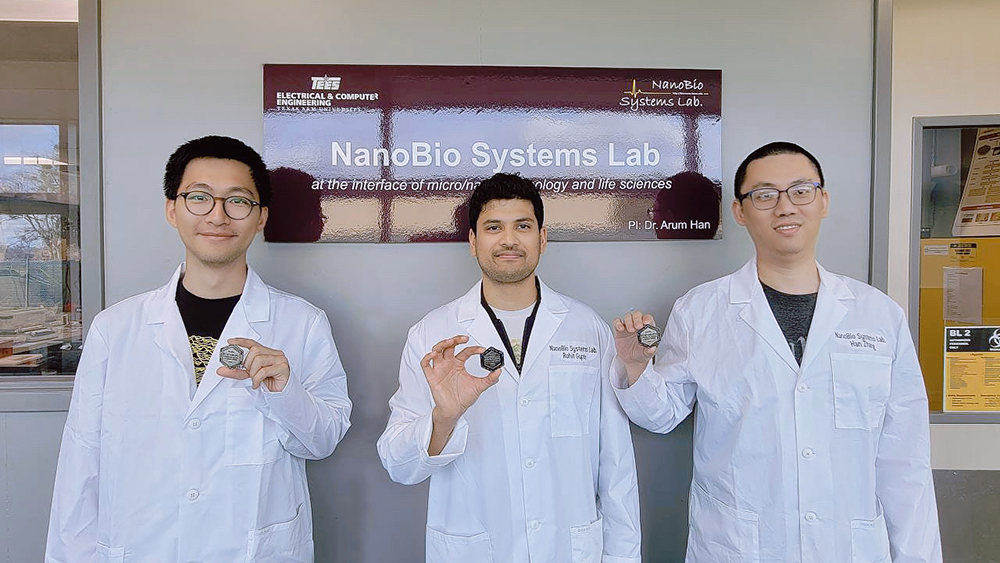
Three researchers from the NanoBio Systems Laboratory in the Department of Electrical and Computer Engineering at Texas A&M University have been named 2022 Defense Advanced Research Projects Agency (DARPA) Risers. This distinction is presented annually to a select group of researchers in the early stages of their careers whose research is related to national security and demonstrates the potential to have a profound impact in this area.
Postdoctoral researcher Can Huang, doctoral student Rohit Gupte and Texas A&M Engineering Experiment Station research engineer Han Zhang were presented this distinction for their work, which they are conducting in the NanoBio Systems Lab. The lab, led by Texas Instruments Professor Dr. Arum Han, is working to solve grand challenge problems in the broad area of health and biotechnology through the use of micro/nano systems technology, especially microfluidic, lab-on-a-chip and organ-on-a-chip systems.
Huang, Gupte and Zhang are currently working as part of the DARPA Friend or Foe program, for which they have developed a prototype system to investigate and identify potential bacterial pathogens from different environments to help establish a pathogen profile within one week.
“This can greatly enhance the responsiveness when public health faces unknown threats or disease outbreaks,” Huang said.
“Being selected for the DARPA Risers class of 2022 was an honor in itself, but being named one of the top five Risers of this class was a massive validation of all the hard work and sacrifice that has gone into my work,” Gupte said.
In addition, Zhang is now applying the innovative next-generation droplet microfluidic platform he developed to broad ranges of biotechnology and biomedicine applications, including rapidly discovering new drug candidates, conducting viral pathogen screening and discovering bioactive materials.
All three researchers presented their work at the DARPA Forward regional symposium held at Texas A&M in November.